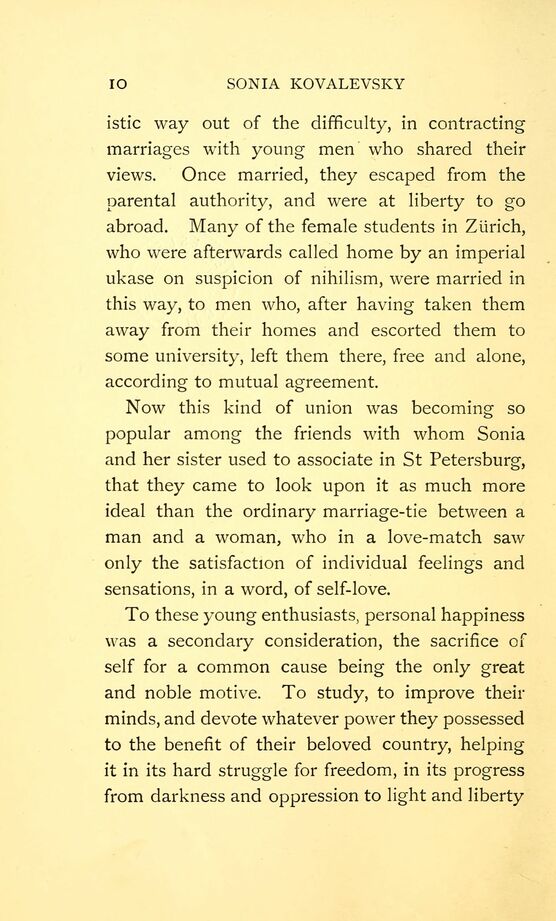Note: Translator Louise von Cossel is or might still be alive. Therefore, this work is protected by copyright, restricting your legal rights to reproduce it. However, you are welcome to view it on screen, as you do now. Read more about copyright.
Full resolution (JPEG) - On this page / på denna sida - Sidor ...

<< prev. page << föreg. sida << >> nästa sida >> next page >>
Below is the raw OCR text
from the above scanned image.
Do you see an error? Proofread the page now!
Här nedan syns maskintolkade texten från faksimilbilden ovan.
Ser du något fel? Korrekturläs sidan nu!
This page has been proofread at least once.
(diff)
(history)
Denna sida har korrekturlästs minst en gång.
(skillnad)
(historik)
characteristic way out of the difficulty, in contracting
marriages with young men who shared their
views. Once married, they escaped from the
parental authority, and were at liberty to go
abroad. Many of the female students in Zürich,
who were afterwards called home by an imperial
ukase on suspicion of nihilism, were married in
this way, to men who, after having taken them
away from their homes and escorted them to
some university, left them there, free and alone,
according to mutual agreement.
Now this kind of union was becoming so
popular among the friends with whom Sonia
and her sister used to associate in St Petersburg,
that they came to look upon it as much more
ideal than the ordinary marriage-tie between a
man and a woman, who in a love-match saw
only the satisfaction of individual feelings and
sensations, in a word, of self-love.
To these young enthusiasts, personal happiness
was a secondary consideration, the sacrifice of
self for a common cause being the only great
and noble motive. To study, to improve their
minds, and devote whatever power they possessed
to the benefit of their beloved country, helping
it in its hard struggle for freedom, in its progress
from darkness and oppression to light and liberty
<< prev. page << föreg. sida << >> nästa sida >> next page >>